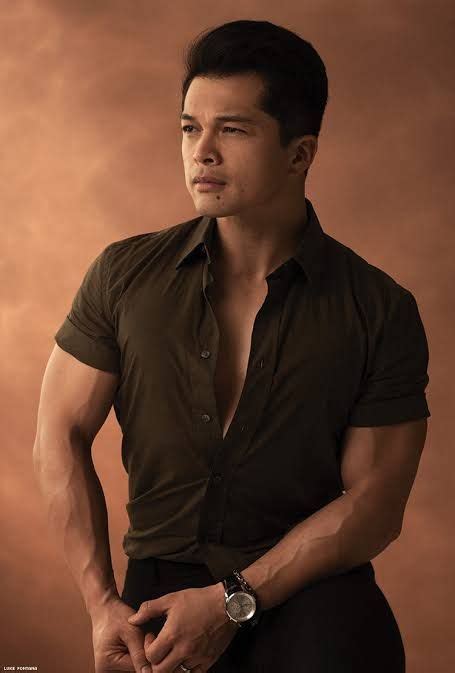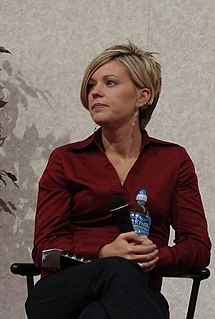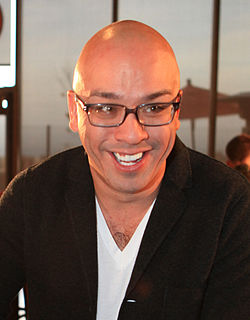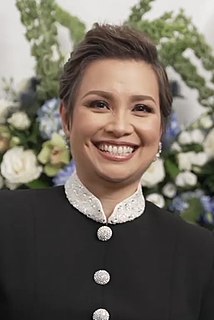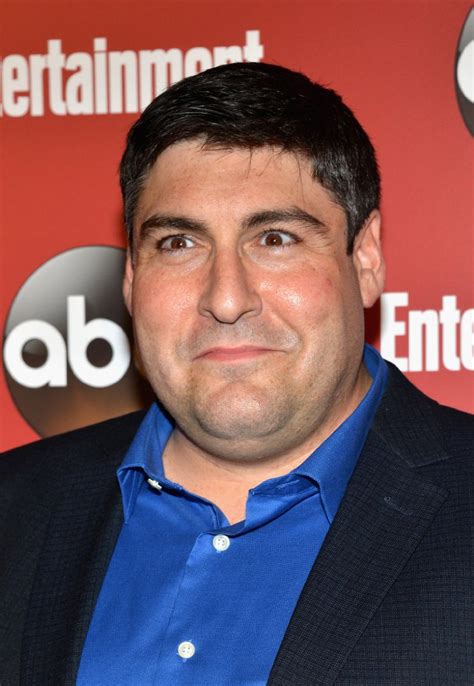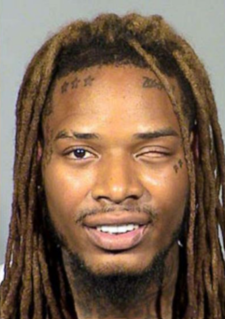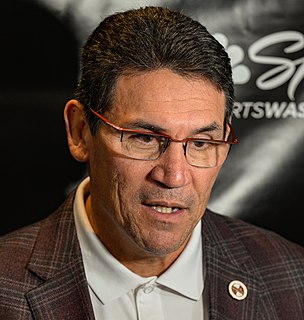A Quote by Vincent Rodriguez III
I was raised in a dominantly Filipino family. I didn't know I was 'mixed' until I got older and started asking questions about my grandparents, the origins of our middle and last names. We were kind of textbook Pinoys. A lot of the Filipino stereotypes that were joked about by me and my friends rang very true with my family.
Related Quotes
My mom is American, so I was raised in her household in my formative years. But as I got older, my pops tried to keep me involved with the culture by telling me the stories of the conflict between Ethiopia and Eritrea, how he came to America, and about our family back home, because all that side of my family, my aunties, grandparents, is in Africa.
First I went to a Jewish school, when I was very little. But when I was 12, they put me in a school with a lot of traditions, and they were educated people and they were talking about Greece and the Parthenon and I don't know what. All the kids, all the girls they had already seen that and knew that from their family, and I would say, "What are you talking about, what's that?" It's not my world. My grandparents were very well-educated people, but in the Jewish tradition. They knew everything about the Bible.
The film 'Documented,' a project of the nonprofit and nonpartisan Define American campaign, is about my families: the family I was blessed to be born into, and the family of friends, mentors and allies that I found when I moved to the United States at 12, a Filipino kid trying to make sense of my new home in America.
I always wanted to let people know I was Filipino, but I didn't want to go up on stage and make it so you wouldn't understand my jokes because you're white or black. I always wanted to let people know I was Filipino through my mom. That was always my goal. That way, everyone got it. You don't have to be Filipino to understand my mom.
When I was about 6, my cousin was very active in a Filipino repertory company, doing musicals and plays. Her aunt was one of the founders of the company, and she told my mom that there were these auditions for 'The King and I,' and that they needed kids. I auditioned, got in and the love affair started from there and just kept going.
'The Wonder Years' family was the kind where everything seemed to be bubbling and simmering with the occasional explosion. There were a lot of things that went unsaid in that family. In my family, everything is said - on the surface, you scream and yell about it, and three minutes later, you're all friends.
As I started getting older and started to learn about the world, my friends would tell me about video games and dirt bikes and stuff, and I'd be like, "Oh, I got none of that." I started asking questions, like, "Why we can't get this stuff?" And it was like, "Well, we work hard to make sure da da da..."
You know, people see [August: Osage County], and I tell them that it's based on my family, and they assume that I came from some kind of horrible, hysterical circumstances. That's not true. My family, my nuclear family, was actually very close. My mom and dad were great parents and they encouraged a real rich, creative life for me and my brothers. My extended family, like every family, has some darkness, and some violence of some kind, emotional or otherwise, in their past.
After Mickey passed, I was talking to my mom on the phone. She was talking about how we were such good brothers and we were so close. And I said, 'Mom, think about how we were raised. We were a military family. And in a military family, because you move around so much, your best friends and your first teammates are your brothers or your sisters.'
